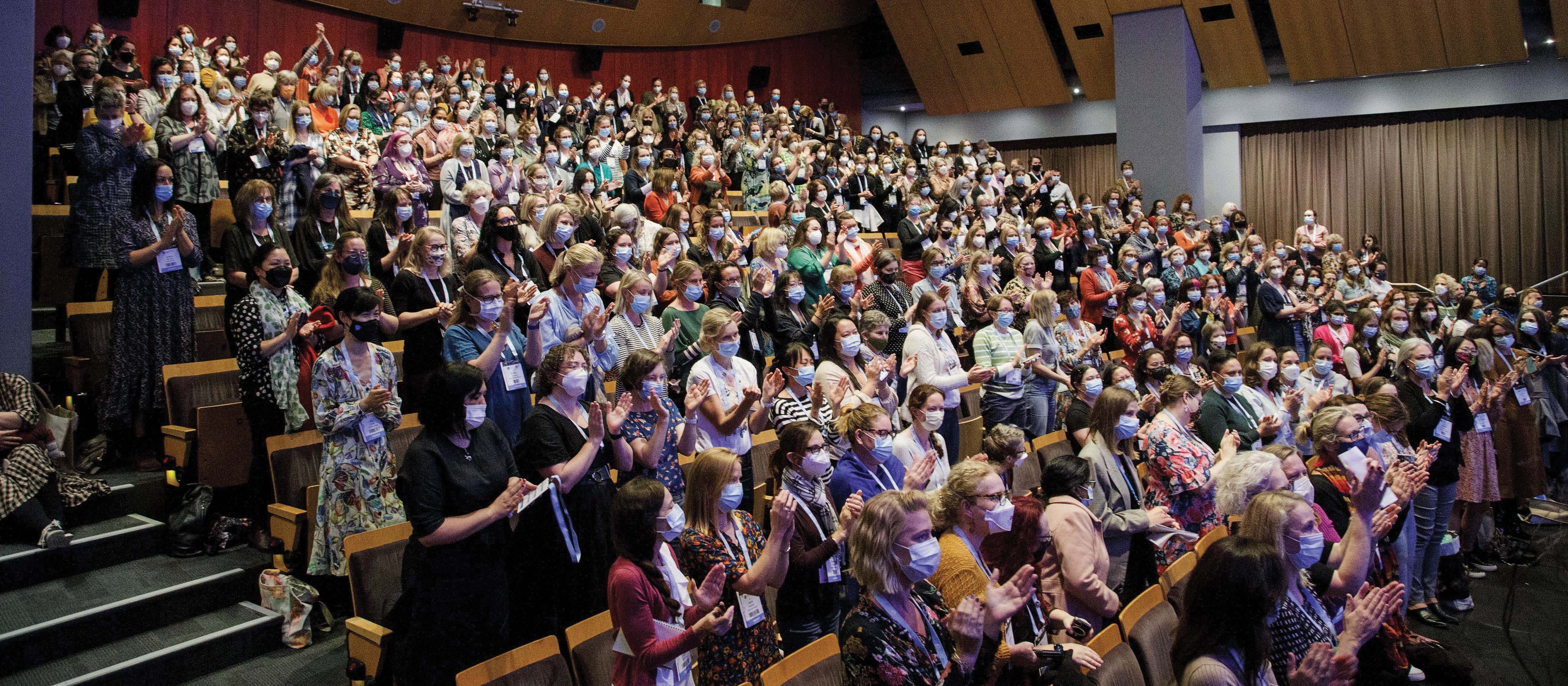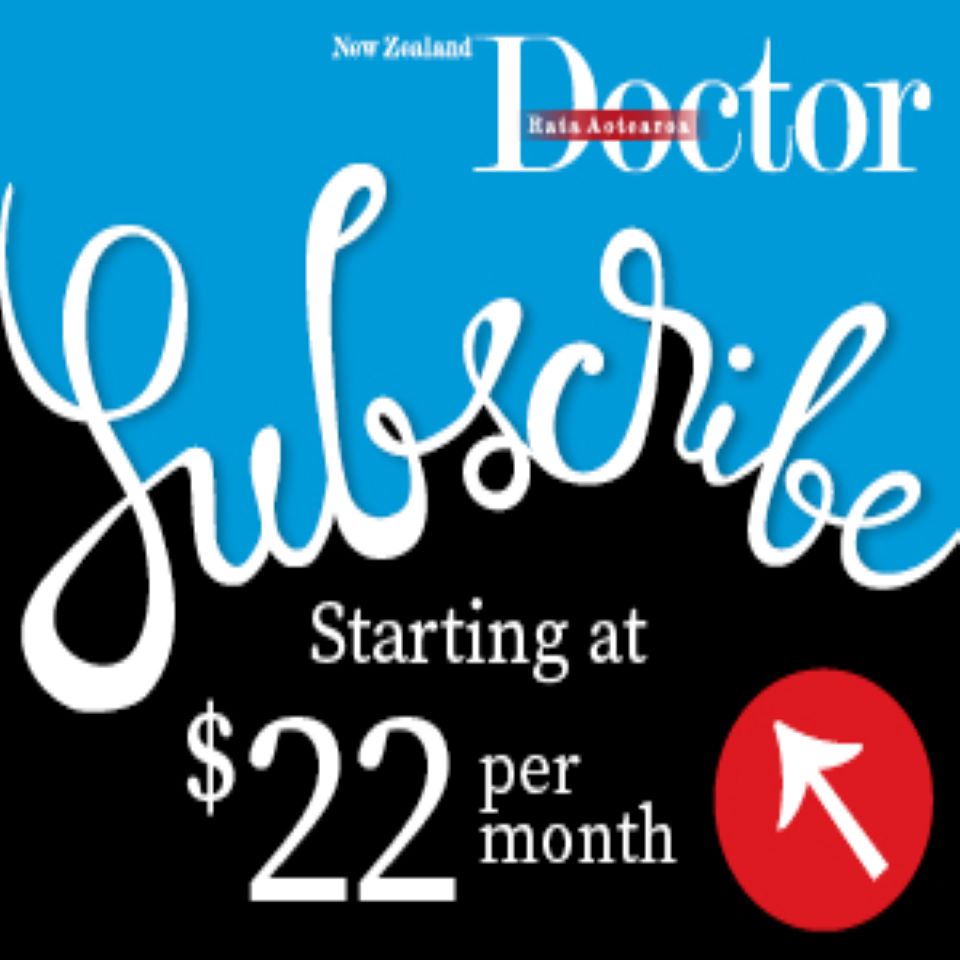Respiratory physician Lutz Beckert considers chronic obstructive pulmonary disease management, including the prevention of COPD, the importance of smoking cessation and pulmonary rehabilitation, and the lifesaving potential of addressing treatable traits. He also discusses the logic of inhaler therapy, moving from single therapy to dual and triple therapy when indicated, as well as other aspects of management
Women doctors were ‘sold a pup’: Mutual support sustains women in a ‘rusting’ health system
Women doctors were ‘sold a pup’: Mutual support sustains women in a ‘rusting’ health system

Why does a gender-based organisation remain necessary for women doctors in 2023? Orna McGinn explains
It began, as these things do, with nothing more than an idea.
The Association of Salaried Medical Specialists had started a Facebook group for women doctors in 2018, in response to a request from members that it facilitate some form of connection for much-needed peer support.
By early 2020, the online group had grown to about 5000 members. It was clear that the ability for wāhine working in medicine to connect and discuss everything from pay disparity to parenting difficulties had hit a nerve.
All ages and stages were now represented: students, senior medical officers (SMOs) and academics across the spectrum of specialties, including primary care, could instigate and contribute to discussions. This demographic encompasses a far wider group than ASMS’ core membership, 95 per cent of whom are Te Whatu Ora-employed SMOs and dentists.
Why does a gender-based organisation remain necessary in 2023? Back in 2003, the previous New Zealand Medical Women’s Association folded after 82 years, due to dwindling interest and membership. At that time, it was assumed parity in medicine was “job done”. The number of women entering the medical workforce was increasing year on year, and women appeared to have at least chipped that glass ceiling.
Fast forward 20 years and we can see we were sold a pup. The country’s medical system has sold its brightest graduates down the river, putting them to work in a rusting system where they are likely to work more unpaid hours and earn considerably less than their male counterparts. This is demonstrably true in general practice, as reported recently by the RNZCGP.
Women doctors leave medicine at a higher rate than men, due to a combination of factors including overwork and bullying.
It can be easy to feel that no one has your back.
Via the NZ Women in Medicine Facebook group, women seek and provide career advice, and share and validate one another’s laments about difficult work environments, racism and the sorrow of relationship breakdowns.
By early 2020, it was clear one thing was still missing, which even the most lively forum cannot provide. Human connection, the ability to put a face to the avatar, to hug and to laugh with your online friends in person. And so, inspired by a UK friend who had started a Women in Medicine group that organised in-person networking events, I put a post on the forum. Would anyone be interested in a similar idea here?
Three years later, New Zealand Women in Medicine has launched a new website that introduces our kaupapa and our team, and showcases our vision and values.
It has been a rollercoaster ride: the slowly mounting excitement of putting together a committee to develop a conference programme; the wide-eyed pause at the top as the conference was sold out in a matter of weeks; then the plummeting stomach roll as COVID-19 hit New Zealand. The country shut down, the conference was put on ice, and our tiny venture looked like it would be bankrupt before we even put on our first event.
Anyway, who is crazy enough to put on a 350-person conference as their first event? A group of passionate amateurs who don’t know any better, is the answer. We were high on ideas and chutzpah and had a conference manager and a large amount of sponsorship pledged before we even realised we needed a bank account to put the funds into.
To open a bank account, we first needed to form a charitable trust. Cart before horse appeared to be our modus operandi but, somehow, owing to the incredible goodwill of the online group and the generosity of sponsors, it came off. In fact, it more than came off: our first conference, which eventually took place in May 2022, was described by many attendees as the best they had ever attended.
This group had attended many, many conferences between them – thousands, in fact. What made this one special? The same things that make NZ Women in Medicine special. The sense of connection across the artificial divides of primary and secondary care, of different specialties, of different regions and levels of experience. The sense of support, of lifting one another up, celebrating one another’s successes and showcasing achievements.
These achievements go beyond the medical: our members are artists and authors, podcasters, positive disruptors and entrepreneurs.
Every one of us wāhine toa is here because we want to make some sort of difference. We want to make things better. We want to work in a system that works and, if those at the top can’t make it work, we will do it ourselves. We will do this by bringing together ideas and innovations, leaders and legends of medicine, all the while having fun and enjoying one another’s company, because that is what women do. We get things done.
Our post-conference survey indicated that peer support, networking and advocacy were the main areas to focus on, so we have spent the past 10 months building on these. The Medical Council has reported that 40 per cent of New Zealand’s medical workforce are international medical graduates, and this proportion rises to over 60 per cent in some areas. Isolation can be overwhelming; a group of like-minded women can be a lifesaver.
Who is crazy enough to put on a 350-person conference as their first event?
We are neither a union nor a lobby group. We are entirely apolitical but believe firmly that health is too important to leave solely to parliamentarians on a short secondment. We are in it for the long haul, and we can see the bigger picture. While we work at the coalface, we see every day the effect the wider social determinants have on the health of our patients and their whānau.
We may not be able to tackle, let alone solve, all these issues, but we can at least provide a forum to challenge those who profess to have the answers.
It is difficult to argue with facts, especially facts presented by a large, united group of bright and articulate women. We’d love you to join us.
Orna McGinn is an Auckland-based specialist GP and chair of the New Zealand Women in Medicine Charitable Trust
We're publishing this article as a FREE READ so it is Free to read and Easy to share more widely. Please support us and our journalism – subscribe here
Chiarella, M. The myth of meritocracy: Resisting the Strengthening Medicare Taskforce Report. In Pearls and Irritations, John Menadue’s Public Policy Journal. Online 11 February 2023.






![Barbara Fountain, editor of New Zealand Doctor Rata Aotearoa, and Paul Hutchison, GP and senior medical clinician at Tāmaki Health [Image: Simon Maude]](/sites/default/files/styles/thumbnail_cropped_100/public/2025-03/Barbara%20Fountain%2C%20editor%20of%20New%20Zealand%20Doctor%20Rata%20Aotearoa%2C%20and%20Paul%20Hutchison%2C%20GP%20and%20senior%20medical%20clinician%20at%20T%C4%81maki%20Health%20CR%20Simon%20Maude.jpg?itok=-HbQ1EYA)
![Lori Peters, NP and advanced health improvement practitioner at Mahitahi Hauora, and Jasper Nacilla, NP at The Terrace Medical Centre in Wellington [Image: Simon Maude]](/sites/default/files/styles/thumbnail_cropped_100/public/2025-03/2.%20Lori%20Peters%2C%20NP%20and%20advanced%20HIP%20at%20Mahitahi%20Hauora%2C%20and%20Jasper%20Nacilla%2C%20NP%20at%20The%20Terrace%20Medical%20Centre%20in%20Wellington%20CR%20Simon%20Maude.jpg?itok=sUfbsSF1)
![Ministry of Social Development health and disability coordinator Liz Williams, regional health advisors Mary Mojel and Larah Takarangi, and health and disability coordinators Rebecca Staunton and Myint Than Htut [Image: Simon Maude]](/sites/default/files/styles/thumbnail_cropped_100/public/2025-03/3.%20Ministry%20of%20Social%20Development%27s%20Liz%20Williams%2C%20Mary%20Mojel%2C%20Larah%20Takarangi%2C%20Rebecca%20Staunton%20and%20Myint%20Than%20Htut%20CR%20Simon%20Maude.jpg?itok=9ceOujzC)
![Locum GP Helen Fisher, with Te Kuiti Medical Centre NP Bridget Woodney [Image: Simon Maude]](/sites/default/files/styles/thumbnail_cropped_100/public/2025-03/4.%20Locum%20GP%20Helen%20Fisher%2C%20with%20Te%20Kuiti%20Medical%20Centre%20NP%20Bridget%20Woodney%20CR%20Simon%20Maude.jpg?itok=TJeODetm)
![Ruby Faulkner, GPEP2, with David Small, GPEP3 from The Doctors Greenmeadows in Napier [Image: Simon Maude]](/sites/default/files/styles/thumbnail_cropped_100/public/2025-03/5.%20Ruby%20Faulkner%2C%20GPEP2%2C%20with%20David%20Small%2C%20GPEP3%20from%20The%20Doctors%20Greenmeadows%20in%20Napier%20CR%20Simon%20Maude.jpg?itok=B0u4wsIs)
![Rochelle Langton and Libby Thomas, marketing advisors at the Medical Protection Society [Image: Simon Maude]](/sites/default/files/styles/thumbnail_cropped_100/public/2025-03/6.%20Rochelle%20Langton%20and%20Libby%20Thomas%2C%20marketing%20advisors%20at%20the%20Medical%20Protection%20Society%20CR%20Simon%20Maude.jpg?itok=r52_Cf74)
![Specialist GP Lucy Gibberd, medical advisor at MPS, and Zara Bolam, urgent-care specialist at The Nest Health Centre in Inglewood [Image: Simon Maude]](/sites/default/files/styles/thumbnail_cropped_100/public/2025-03/7.%20Specialist%20GP%20Lucy%20Gibberd%2C%20medical%20advisor%20at%20MPS%2C%20and%20Zara%20Bolam%2C%20urgent-care%20specialist%20at%20The%20Nest%20Health%20Centre%20in%20Inglewood%20CR%20Simon%20Maude.jpg?itok=z8eVoBU3)
![Olivia Blackmore and Trudee Sharp, NPs at Gore Health Centre, and Gaylene Hastie, NP at Queenstown Medical Centre [Image: Simon Maude]](/sites/default/files/styles/thumbnail_cropped_100/public/2025-03/8.%20Olivia%20Blackmore%20and%20Trudee%20Sharp%2C%20NPs%20at%20Gore%20Health%20Centre%2C%20and%20Gaylene%20Hastie%2C%20NP%20at%20Queenstown%20Medical%20Centre%20CR%20Simon%20Maude.jpg?itok=Z6u9d0XH)
![Mary Toloa, specialist GP at Porirua and Union Community Health Service in Wellington, Mara Coler, clinical pharmacist at Tū Ora Compass Health, and Bhavna Mistry, specialist GP at Porirua and Union Community Health Service [Image: Simon Maude]](/sites/default/files/styles/thumbnail_cropped_100/public/2025-03/9.%20Mary%20Toloa%2C%20Porirua%20and%20Union%20Community%20Health%20Service%20in%20Wellington%2C%20Mara%20Coler%2C%20T%C5%AB%20Ora%20Compass%20Health%2C%20and%20Bhavna%20Mistry%2C%20PUCHS%20CR%20Simon%20Maude.jpg?itok=kpChr0cc)